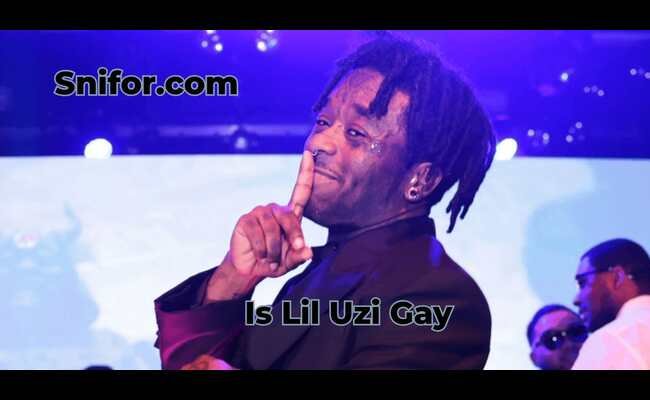
Best Jobs In The Philippines 2024 Top 10 Highest Paying Jobs
December 30, 2023
Best Powerbank In The Philippines 2024 Best Power Bank
January 1, 2024Best President of the Philippines 2024
Today our topic is Best President Of The Philippines 2024 Philippine President. When assessing the best presidents of the Philippines, it is essential to delve into their legacies, leadership styles, and the impact on the nation. Ferdinand Marcos, Ramon Magsaysay, and other former presidents have shaped Philippine politics and history in diverse ways, leaving behind enduring legacies that continue to influence the country’s governance and societal development.

Best President Of The Philippines
Who Were the Best Presidents of the Philippines?
Two Philippine presidents who have significantly influenced the country’s political landscape are Ferdinand Marcos and Ramon Magsaysay. The legacy of Ferdinand Marcos is marred by his declaration of martial law, which had a profound impact on Philippine society, while Ramon Magsaysay is remembered for his commitment to public service and his fight against communism.
Also Read: Best Jobs In The Philippines
Legacy of Ferdinand Marcos
Ferdinand Marcos, the 10th president of the Philippines, held the longest presidency in Philippine history. His presidency was marked by authoritarian rule, characterized by the declaration of martial law on September 21, 1972. This period led to widespread human rights abuses and crony capitalism, with the Marcos regime amassing immense wealth while the Filipino people suffered. The effects of his governance are still heavily felt today.
Ramon Magsaysay’s Impact on Philippine Politics
Ramon Magsaysay, often regarded as the “true Filipino president,” was known for his public service-oriented leadership style. His presidency focused on eradicating corruption and promoting social justice, emphasizing the importance of good governance and public accountability. His tenure marked a significant departure from traditional political practices, and his legacy continues to influence modern Philippine politics.
Also Read: Best Credit Card In The Philippines
Comparison of Different Philippine Presidents
An in-depth analysis of diverse Philippine presidents, including Ferdinand Marcos and Ramon Magsaysay, offers valuable insights into the varied leadership styles and the impact of their decisions on the nation’s development. Their contrasting approaches to governance have left a lasting imprint on Philippine history and continue to shape the present political landscape.
Impact and Significance of the Philippine Presidency
The role of the president in shaping the Philippines cannot be overstated. Philippine presidents have historically played a crucial role in guiding the country through periods of adversity and development, with their policies and decisions leaving a lasting impression on the nation and its people.
The Role of the President in Shaping the Philippines
The presidency holds significant influence in steering the direction of the Philippines, with the president acting as the primary figurehead of the nation. The decisions and leadership of the president have a direct impact on the development and progression of Philippine society, making the role of the president a cornerstone of the country’s governance.
Philippine Presidents and Their Influence on the Country
Philippine presidents have shaped the nation through their policies, initiatives, and responses to critical issues. Their leadership has influenced various aspects of Philippine life, including social, economic, and political domains, contributing to the intricate fabric of the country’s development.
Also Read: Best Time To Post On Instagram Philippines
Presidential Policies that Shaped the Nation
Presidential policies, ranging from economic strategies to social reforms, have significantly shaped the trajectory of the Philippines, leaving an indelible mark on the nation’s history and future. Assessing the impact of these policies is vital in understanding the lasting influence of different presidencies.
How Did Previous Presidents Handle National Crises and Challenges?
The Philippines has faced numerous national crises and challenges, and the effective handling of these events by former presidents has shaped the country’s resilience and response to adversity. From martial law under Ferdinand Marcos to the legacy of the Aquinos, Philippine presidents have navigated through turbulent times, leaving a profound impact on the nation.
Handling Martial Law: Ferdinand Marcos and the Philippines
The imposition of martial law by Ferdinand Marcos in 1972 had a divisive and enduring impact on Philippine society. The suppression of political dissent, widespread human rights violations, and economic upheaval characterized this period, leaving a deep scar on the nation’s history. The repercussions of this era continue to resonate in contemporary Philippine political discourse.
The Aquino Legacy: Cory and Benigno’s Presidency
The tenure of Corazon Aquino and the subsequent presidency of her son, Benigno Aquino III, marked a significant shift in Philippine politics. The Aquinos emerged as prominent figures in the fight against authoritarian rule, with their presidencies symbolizing a beacon of hope for democracy and social justice in the Philippines.
Also Read: Best Friend Day In Philippines
Ramos and Aquino III: Philippine Presidents in Times of Adversity
The presidencies of Fidel V. Ramos and Benigno Aquino III, amid various challenges, showcased the resilience and adaptability of the Philippine government. From economic reforms to diplomatic endeavors, their leadership styles and decisions had a far-reaching impact on the nation, shaping its trajectory in the face of adversity.
Assessment of Leadership Styles and Decisions of Former Presidents
An evaluation of the leadership styles and decisions of former Philippine presidents offers valuable insights into the governance and decision-making processes that have molded the nation. From the authoritative governance of Ferdinand Marcos to the progressive leadership of Corazon Aquino, these distinct approaches have profoundly influenced the fabric of Philippine society.
Leadership Styles of Corazon Aquino and Ferdinand Marcos
The dichotomy between the leadership styles of Corazon Aquino and Ferdinand Marcos epitomizes the divergent paths of Philippine governance in the late 20th century. Aquino’s commitment to democratic ideals and social justice stood in stark contrast to Marcos’ authoritarian rule, showcasing the pivotal role of leadership in shaping the nation’s narrative.
Assessing the Decision-Making of Different Philippine Presidents
The decisions made by various Philippine presidents have had multifaceted implications, influencing the socio-political landscape and leaving a lasting impact on the nation. The assessment of these decisions allows for a comprehensive understanding of their implications on Philippine history and development.
Implications of Dictatorship in the Philippines under Various Presidents
The implications of dictatorship under different Philippine presidents have had profound and enduring effects on the nation. The consequences of authoritative rule, coupled with the struggle for democracy, have left an indelible mark on the Philippines, shaping its political consciousness and societal dynamics.
Also Read: Best Time To Post On TikTok Philippines
What Legacy Did the Former Presidents Leave Behind?
The legacies of former presidents, including Ferdinand Marcos, Corazon Aquino, and Ramon Magsaysay, continue to reverberate through the annals of Philippine history, underscoring their enduring influence on the country’s trajectory. Their contributions have had profound and lasting implications for the Filipino people and the nation as a whole.
The Legacies of Ferdinand Marcos and the Impact on Modern Philippines
Ferdinand Marcos’ legacy remains a contentious issue in modern Philippine discourse. The socio-political repercussions of his presidency, particularly the period of martial law, continue to shape contemporary Filipino perspectives, illustrating the enduring impact of his governance on the country.
Corazon Aquino and Her Role in Changing the Philippines
Corazon Aquino’s ascendancy to the presidency marked a pivotal moment in Philippine history. Her commitment to democracy and social reform, coupled with her steadfast leadership, catalyzed significant changes within the nation, leaving a legacy that endures as a testament to her enduring impact on the Philippines.
Ramon Magsaysay’s Enduring Influence on Philippine Politics
Ramon Magsaysay’s enduring influence on Philippine politics stems from his dedication to public service and his commitment to addressing the needs of the Filipino populace. His legacy as the “true Filipino president” continues to inspire public officials and citizens alike, embodying the epitome of integrity and devoted service to the Filipino people.
Q: Who is considered the best president of the Philippines?
A: The perception of the best president of the Philippines varies among Filipinos, with some considering leaders like Ferdinand Marcos, Corazon Aquino, and Rodrigo Duterte as their favorites.
Q: Did President Rodrigo Duterte run for president in 2022?
A: No, Rodrigo Duterte was not eligible to run for president in the 2022 election as he had already served a single term as the Philippine president from 2016 to 2022.
Q: What is the significance of EDSA in the history of Philippine presidents?
A: EDSA is historically significant as the site of the People Power Revolution that led to the ousting of President Ferdinand Marcos and the rise of President Corazon Aquino, marking a turning point in Philippine history.
Q: Who was the predecessor of President Rodrigo Duterte?
A: The predecessor of President Rodrigo Duterte was Benigno Aquino III, who served as the President of the Philippines before Duterte took office in 2016.
Q: Was Gloria Macapagal-Arroyo a notable Filipino president of all time?
A: Gloria Macapagal-Arroyo, commonly known as GMA, served as the President of the Philippines and was the country’s second female president, with her term as president marked by various economic and political challenges.
Q: How is President Ferdinand Marcos perceived among Filipinos?
A: President Ferdinand Marcos, while known for his declaration of martial law and the imposition of a dictatorship, remains a controversial figure among Filipinos, with some holding him in high regard while others criticize his regime’s human rights abuses.
Q: What was the role of President Diosdado Macapagal in Philippine history?
A: President Diosdado Macapagal, the father of Gloria Macapagal-Arroyo, served as the 9th President of the Philippines and is known for initiatives such as changing the date of Philippine Independence Day to June 12.
Q: What is the opinion of Filipinos on President Rodrigo Duterte’s term as president?
A: Filipinos hold diverse opinions on President Rodrigo Duterte’s term as the country’s leader, with some praising his tough stance on crime and drugs while others criticize his approach and policies.
Q: How is President Corazon Aquino regarded by the Filipino people?
A: President Corazon Aquino, the first female President of the Philippines, is widely revered for her role in the People Power Revolution and her efforts in restoring democracy in the country after the Marcos regime.
Q: What is the impact of the University of the Philippines in shaping Philippine presidents?
A: The University of the Philippines has played a significant role in shaping Philippine presidents, as it has been a breeding ground for future leaders, fostering a culture of critical thinking and public service among its students.
Hope you enjoy reading our article Best President Of The Philippines 2024 Philippine President.



